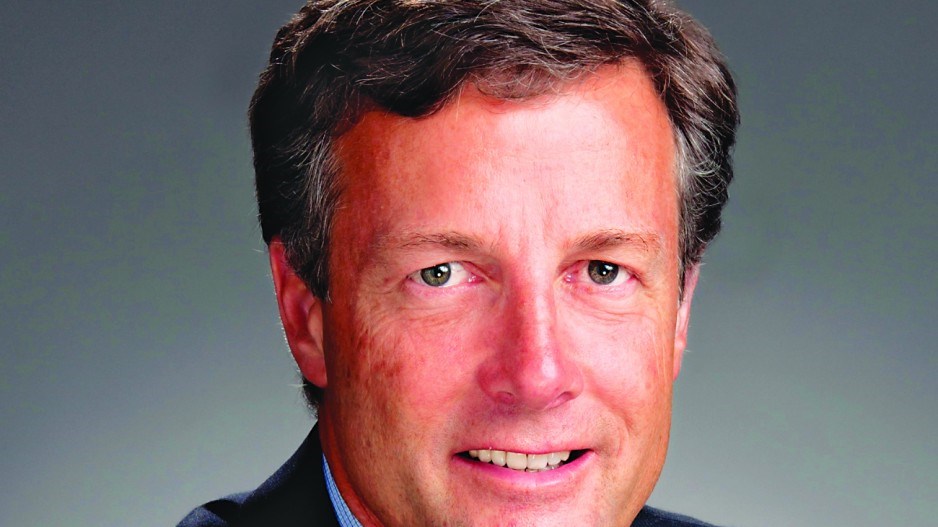The City of Vancouver’s plan to be 100% renewable by 2050, while laudable in aspiration, appears unrealistic, unless the city is prepared to adopt some rather draconian measures, like phasing out parking for gas and diesel cars, starting in 2025, according to a new case study from Simon Fraser University.
SFU’s school of Energy and Materials Research examined the City of Vancouver’s Renewable City Strategy, which aims to reduce greenhouse gas emissions by 80% by 2050 and derive 100% of the city’s energy needs from renewable energy.
The study, co-authored by energy economist Mark Jaccard, concludes that, unless senior governments implement much higher carbon pricing and-or more stringent GHG reduction regulations, the city on its own would have to use the limited legislative tools at its disposal with a heavy hand, if it is to meet its stated goals.
It also envisions a city that would be largely dependent on BC Hydro for all of its future energy, since it would be the most cost competitive source of clean energy, after natural gas is phased out as a heating source.
“Vancouver has shown much-needed leadership in initially meshing its livability and emission reductions efforts, and now in recognizing the necessity of fuel-switching as the next stage,” Jaccard said in a press release accompanying the report.
“But with greater leadership comes greater challenge. This is why our report distinguishes between what the city could do on its own and where its efforts would benefit from leadership at senior levels of government.”
The study points out that cities around the world have set themselves some ambitious targets when it comes to tackling climate change.
“Are the claims of city governments and the advocates of urban climate action realistic, or simply more of the ineffectual hype that one sees all too often with the climate challenge?” the report’s authors ask.
As the study points out, only 30% of Vancouver’s energy is currently renewable – most of that coming from BC Hydro. The balance comes from natural gas for space and water heating in buildings, and from gas and diesel powered vehicles.
The report concludes the city’s Renewable City Strategy (RCS) sets targets but without specific policies for meeting them.
“For example, one priority is that all new buildings be zero emissions by 2030, but
the RCS does not provide a detailed policy to achieve this target,” the report states.
Since the city has no clear plans for hitting its targets, Jaccard and co-authors Brett Zuehlke and Rose Murphy came up with some possible policies, based on a number of scenarios. In one scenario, senior governments increase climate policies (carbon pricing and regulations). In others, the status quo is assumed.
Since municipal governments do not have the authority to ban gas and diesel cars outright, it would need to use its available legislative tools, such as parking.
“Given its jurisdictional authority as a municipal government, this will be a challenge, less so with buildings, more so with vehicles, where parking restrictions for different types of vehicles may be the best option,” the report states.
The modeling suggests the city would have to start imposing parking restrictions in 2025. By 2040, there would be no city-controlled parking spaces available for diesel and gas vehicles.
Parking for hybrid vehicles would even have to be phased out. Parking spaces for hybrids would need to be reduced, starting in 2035, with full phase-out by 2050.
As for freight trucks, the report assumes the city would use business licensing to require all trucks operating in the city to be either electric, or some type of hybrid, such as electric-biofuel. Trucks operating on LNG or compressed natural gas would have to be phased out by 2030.
Two tools that the city does have control over are building codes and zoning. It already plans to use those tools to phase out non-renewable natural gas.
The modeling assumes that non-renewable natural gas will no longer be available in new buildings, starting in 2030. Nor would it be allowed for replacement equipment in older buildings.
Since renewable natural gas (typically made from the methane from landfills and composting facilities) currently makes up less than half a per cent of the current available mix of gas, the report suggests it is unlikely that enough renewable natural gas can be produced at a rate that could compete with electricity.
While more renewable natural gas could be produced from wood waste, it would be costly. The report states the cost of RNG would rise, from 60% higher than regular natural gas in 2020 to 100% higher in 2050, which would mean it could not compete with electricity.
The report concludes that “large supplies of RNG will not be available to the Vancouver region at a cost that is competitive with renewable electricity for building end-uses.”
In other words, despite the city’s insistence that it is not planning to phase out natural gas, replacing non-renewable gas with renewable gas is just not economically feasible.
As for the city’s plans to develop district energy systems, they would be capital intensive and unable to compete with BC Hydro power.
Even with increased densification, which makes district energy more viable, the report concludes that district energy would remain “a relatively small percentage of the energy systems serving most buildings in Vancouver” by 2050.
The report concludes:
“There may be less politically challenging pathways to 100% renewables than the policies we have outlined here. This is especially the case if senior levels of government can be convinced to apply country-wide pricing and/or regulatory policies.
“In the absence of that, Vancouver must build support for implementing the policies we have suggested soon, or acquire greater jurisdictional powers to enable it to explore other policy options, or it will fail to meet its Renewable City Strategy targets.”




